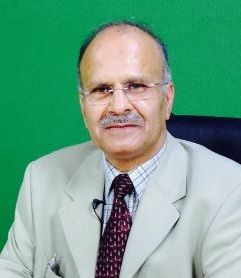Dr. Shabir Choudhry | |
|---|---|
 | |
| Born | |
| Citizenship | United Kingdom, Pakistan |
| Known for |
|
Shabir Choudhry is a British national and a Kashmiri leader, rights and peace activist, politician, academician and writer. He helped form the Kashmir Youth Movement in 1973, the Jammu and Kashmir Liberation Front in 1976 and later on the Kashmir National Party in 2008. He resigned from each of these after being discouraged or opposed to the direction they were headed. [1] [2] [3] He went to United Kingdom in 1966 where he continues his struggle against forces of occupation, terrorism, extremism and religious intolerance in Azad Kashmir and Kashmir through regular statements, articles, press releases, conference and videos. [4] [5] [6] [7] [8] [9] He is a British national as well as a Pakistani/Kashmiri national. [10]